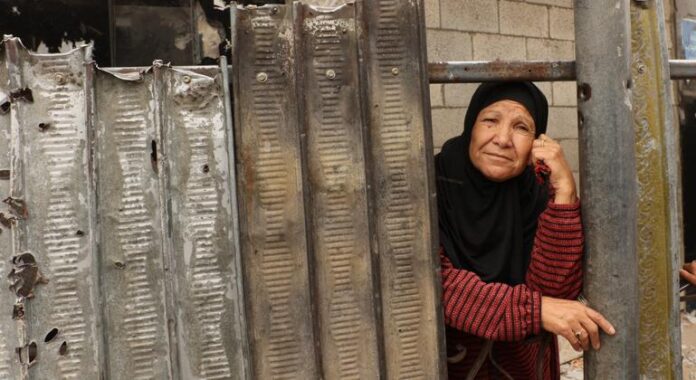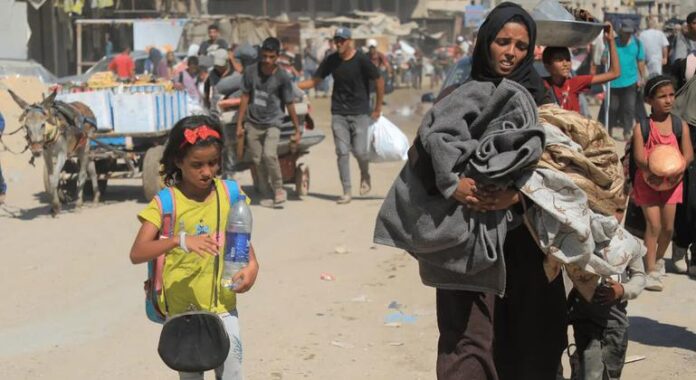Most aspiring political leaders and engaged citizens recognise the need for effective education and training in European politics. To thrive in this ever-evolving landscape, you must adopt transformative approaches that not only deepen your understanding of policies but also empower you to influence change. This blog post will guide you through necessary steps to enhance your educational experience, build meaningful connections, and drive initiatives that shape a better future for Europe. Embrace these strategies to secure your role in the dynamic realm of politics.
Current State of Education in European Politics
The landscape of education in European politics is constantly evolving, adapting to the changing dynamics of the political environment and the needs of the populace. In many European countries, educational institutions are increasingly incorporating political education into their curriculums, which is important for nurturing informed citizens. Initiatives like the EU Education at School – European Movement highlight the importance of integrating European politics into the classroom, enabling students to develop a critical understanding of their roles within the EU framework and the political systems that govern their lives.
Overview of Existing Programs
Around Europe, various educational programmes aim to enhance your understanding of political mechanisms and democratic processes. These initiatives often span primary and secondary education, targeting young minds to instil a sense of civic responsibility and active participation. Universities also contribute by offering specialised courses and degrees focusing on European politics, fostering a new generation of political leaders. These structures, alongside extracurricular activities such as debate clubs and youth parliaments, provide robust avenues for engaging with contemporary political issues.
Challenges Facing Political Education
Programs designed to elevate political education face a myriad of challenges that can impede their effectiveness. Several factors, including a lack of resources, inadequate teacher training, and varying societal interest, often limit the impact of political education in schools. You may find that in some regions, political education is overshadowed by other subjects, leaving students underprepared for the complexities of the democratic process that they will encounter in adulthood.
In fact, these challenges can foster apathy towards political engagement among young people, leading to a significant disconnect from democratic processes. The absence of well-structured programmes and resources can diminish opportunities for students to explore their civic roles and responsibilities. If educators are not adequately equipped or motivated to teach political topics, it can result in a generation lacking the necessary knowledge and skills to participate effectively in society. This situation presents a dangerous gap that needs addressing to ensure that future citizens can make informed decisions and contribute positively to the democratic landscape of Europe.
Innovative Teaching Methods
Any discussion on enhancing education and training in European politics must highlight innovative teaching methods. By adopting diverse pedagogical approaches, educators can better engage students and facilitate deeper understanding of the complex political landscape. You should consider incorporating various strategies that cater to different learning styles and foster critical thinking.
Incorporating Technology and Digital Tools
Across European educational institutions, the integration of technology and digital tools is transforming the way political science is taught. Utilising online platforms and interactive resources allows you to access a wealth of information and engage with diverse perspectives. Tools such as virtual classrooms, discussion forums, and online simulations can enhance your learning experience, making it more dynamic and inclusive. By leveraging these advancements, you can develop imperative skills for navigating the contemporary political landscape.
Experiential Learning Through Simulations
Through experiential learning, simulations provide you with a unique opportunity to immerse yourself in real-world political scenarios. This practical approach enables you to apply theoretical knowledge in a safe and controlled environment, encouraging active participation and critical thinking. Engaging in simulations allows you to grasp the intricacies of diplomacy, negotiation, and decision-making processes, as you take on roles that mirror the realities faced by policymakers.
Plus, engaging in simulations can also unveil the realities and challenges inherent in political life, giving you insights into the emotional and ethical dilemmas that decision-makers encounter. By role-playing in these scenarios, you develop not only your analytical skills but also your empathy and teamwork, which are imperative for effective political engagement. This method prepares you to handle the multifaceted nature of politics with greater confidence and understanding, enriching your educational experience significantly.
Curriculum Development
Some of the most effective educational strategies centre around the idea that curriculum development must evolve with the changing dynamics of European politics. By integrating contemporary issues and trends into the curriculum, you can ensure that your educational programme remains relevant and engaging for students. It is imperative to involve input from a diverse range of stakeholders, including educators, political scientists, and practitioners, to create a comprehensive and well-rounded course structure. This collaboration not only helps in addressing the varied perspectives found within European politics but also equips students with the necessary skills to navigate this multifaceted landscape.
Interdisciplinary Approaches
On exploring interdisciplinary approaches, you will find that integrating insights from various fields such as economics, sociology, and history can significantly enrich your understanding of European politics. This method allows students to draw connections between political theories and real-world applications, leading to a more holistic comprehension of the political landscape. By incorporating concepts from different disciplines, you enable students to analyse complex situations from multiple angles, fostering well-rounded critical thinkers who are equipped to tackle the challenges of modern governance.
Emphasis on Critical Thinking and Problem Solving
Thinking critically about political issues is vital in an ever-evolving environment. When you place emphasis on developing these skills within your curriculum, you prepare students to effectively analyse information, identify biases, and propose actionable solutions to pressing political concerns. This not only enhances their academic performance but also ensures they possess the tools needed for informed civic engagement.
Consequently, embracing an educational approach that prioritises critical thinking and problem-solving will lead to a generation of students who can confidently navigate and influence the political landscape. By fostering these skills in your curriculum, you not only enhance students’ academic experiences but also prepare them to become informed participants in democratic processes. Encouraging this level of engagement creates individuals who are not just passive observers but active contributors to society, ultimately leading to a more vibrant and resilient political discourse in Europe.
Strengthening Partnerships
For effective enhancement of education and training in European politics, strengthening partnerships plays a pivotal role. You must recognise that collaboration among various stakeholders can lead to innovative approaches and shared resources, which are fundamental in addressing complex political challenges. By fostering connections between educational institutions, governmental bodies, and non-governmental organisations, you can create a comprehensive support system that benefits both educators and learners. This synergy not only enriches the learning experience but also ensures that new policies reflect the latest educational insights and real-world applications.
Collaboration Between Universities and Policymakers
Any successful transformation in political education necessitates a robust collaboration between universities and policymakers. By engaging in proactive dialogue, universities can align their curricula with the evolving needs of policymakers, ensuring that students are equipped with the necessary skills and knowledge to navigate the landscape of European politics. You have the opportunity to advocate for joint initiatives, such as research projects or internships, that not only strengthen your academic programmes but also enhance the practical experience of students, creating a well-rounded educational approach.
Engaging Civil Society and Community Organizations
For truly transformative educational experiences, engaging civil society and community organisations is paramount. These organisations often have deep-rooted insights into the political challenges faced at the grassroots level, making their perspectives invaluable. You can tap into these resources by incorporating community-led initiatives into your educational framework, allowing learners to connect theoretical knowledge with practical applications in their local contexts.
The engagement of civil society and community organisations can also facilitate a two-way exchange of ideas, fostering an environment where you can challenge existing narratives and foster inclusive dialogues. This symbiotic relationship not only enriches your education system but also empowers individuals in the community to become informed citizens, actively participating in the political process. By strengthening these ties, you can ensure that your educational initiatives are not only grounded in academic theory but also resonate with the experiences and aspirations of the broader society, ultimately contributing to a more informed and active electorate.
Assessment and Evaluation
Despite the many challenges faced in education and training, it is crucial to implement robust assessment and evaluation methods to ensure the continuous improvement of learning outcomes in European politics. Your involvement in this evaluation process can significantly enhance the effectiveness of educational programmes. Engaging with initiatives such as Transforming Education: UN Country Teams Leading the Charge can provide valuable insights into successful assessment frameworks that can be adopted across various educational settings.
Measuring Educational Outcomes
An effective way to gauge your progress in understanding European politics is through the measurement of educational outcomes. This involves not just assessing the knowledge acquired, but also looking at critical thinking skills, analytical abilities, and the application of political theory to real-world scenarios. By establishing clear metrics and benchmarks, you can ensure that educational objectives are being met, thereby fostering a deeper understanding of the political landscape.
Feedback Mechanisms for Continuous Improvement
Outcomes driven by feedback mechanisms are crucial for continuous improvement in educational practices. As you embrace these systems, it is important to gather constructive feedback from peers, instructors, and participants to identify areas for enhancement. This collaborative approach ensures that the curriculum remains relevant and effective in addressing the evolving needs of students confronting the complexities of European politics.
Further refinement of your educational programmes can be achieved by establishing a culture of open communication and constructive criticism. By facilitating regular feedback sessions and incorporating insights from diverse stakeholders, you can create a dynamic learning environment that not only fosters personal growth but also equips students with the practical skills needed to navigate the intricacies of the political arena effectively.
Case Studies of Successful Initiatives
Unlike many regions, Europe has implemented numerous successful initiatives that have notably enhanced education and training within European politics. These case studies provide valuable insight into effective practices that can be emulated across the continent. Here is a detailed list highlighting some impactful examples:
- Germany: The “Political Education Initiative” launched by the Federal Agency for Civic Education has seen over 1.2 million participants annually, significantly increasing political awareness among young people.
- France: The “Civic Engagement Programme” engages over 200,000 students annually, fostering active participation through workshops and simulated political debates.
- United Kingdom: The “Youth Parliament” initiative, with over 300 representatives from various regions, promotes civic engagement among youth and has successfully led to over 20 policy actions in Parliament.
- Netherlands: The “Democracy Challenge” programme, involving 50 schools, successfully increased students’ involvement in local governance by 30% over two years.
- Sweden: The “Political Awareness Campaign” reached approximately 500,000 citizens through seminars aimed at increasing participation in local elections.
Examples from Various European Countries
One of the most striking examples comes from Germany, where the Federal Agency for Civic Education has effectively engaged a massive audience through its innovative political education strategies. This commitment to fostering a politically informed populace has not only enhanced individual knowledge but also strengthened collective engagement in democratic processes. In contrast, France’s Civic Engagement Programme has successfully facilitated a direct line between students and local decision-makers, fostering a sense of responsibility and ownership of civic duties among the youth demographic.
One can also observe noteworthy developments in the United Kingdom with the Youth Parliament initiative, which continuously empowers young individuals to voice their concerns and contribute meaningfully to the political discourse. The impact of these educational initiatives is further evident in Sweden, where the Political Awareness Campaign has significantly heightened political participation rates, demonstrating the effectiveness of targeted outreach and education in elevating democratic engagement.
Lessons Learned and Best Practices
One important takeaway from these successful initiatives is the significance of engaging young people through interactive and participatory methods. The various programs have shown that when you involve individuals in active learning experiences, they are more likely to remain engaged and informed citizens. Moreover, collaborating with local communities and institutions greatly enhances the impact of educational initiatives, as this fosters trust and encourages wider participation.
Practices from these case studies illustrate the importance of tailoring programmes to meet the specific needs of different demographics. Acknowledging and addressing the unique challenges faced by various target groups ensures that your initiatives are both relevant and effective. Additionally, the commitment to continuous evaluation and adaptation of educational practices plays a vital role in ensuring the longevity and effectiveness of programmes. These elements can dramatically improve not only awareness but also active participation in political processes across Europe.
Summing up
Following this, it is necessary to recognise the importance of implementing transformative steps to enhance education and training within European politics. You must consider incorporating innovative teaching methods that foster critical thinking and collaboration, allowing you to engage more effectively with complex political issues. Emphasising interdisciplinary approaches and experiential learning opportunities can equip you with a broader understanding of political systems and their implications, making your educational experience more relevant and enriching.
Additionally, fostering strong partnerships between educational institutions and political organisations can significantly enhance the practical relevance of your training. By actively participating in internships, workshops, and simulations, you can gain invaluable insights into the workings of European politics. You should also advocate for diverse perspectives within the curriculum, ensuring that you are exposed to a variety of political ideologies and frameworks. This holistic approach will not only prepare you for current challenges but also empower you to become an informed and active participant in shaping the future of European governance.
FAQ
Q: What are some key steps to enhance education in European politics?
A: Enhancing education in European politics involves several strategic steps, including the integration of interdisciplinary studies that encompass political theory, history, and economics. Additionally, promoting experiential learning through internships and political simulations can provide students with practical insights. Establishing partnerships with European institutions for exchange programmes can further enrich the curriculum.
Q: How can training programmes be improved for those pursuing careers in European politics?
A: Training programmes can be improved by incorporating up-to-date content that reflects current political trends and challenges within Europe. Workshops led by experienced politicians and policymakers can offer invaluable real-world perspectives. Moreover, employing digital tools and platforms for virtual training sessions can broaden accessibility and reach a wider audience.
Q: What role does technology play in enhancing education and training in European politics?
A: Technology plays a significant role in enhancing education and training by providing innovative learning tools such as online courses and interactive platforms. These technologies facilitate the sharing of resources and foster collaboration among students across different countries. Online forums and social media also enable learners to engage in discussions and debates, promoting a deeper understanding of European political dynamics.
Q: How can educators ensure that their teaching methods remain relevant to the evolving landscape of European politics?
A: Educators can ensure relevancy by continually updating their curricula to reflect the latest political developments, trends, and theories. Attending conferences and engaging with think tanks can provide insights into contemporary issues. Collaborating with practitioners in the field allows educators to incorporate practical examples and case studies that resonate with students.
Q: What support systems should be put in place for students pursuing education in European politics?
A: Support systems should include academic advising tailored to the needs of students in this field, mentorship programmes connecting students with professionals, and access to relevant resources such as research databases and journals. Providing opportunities for networking through events and workshops can also enhance students’ exposure to the political arena, fostering professional connections that may benefit their future careers.











